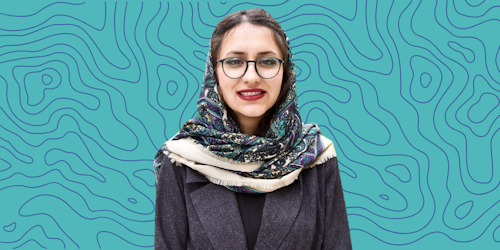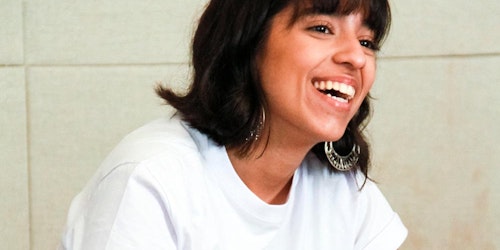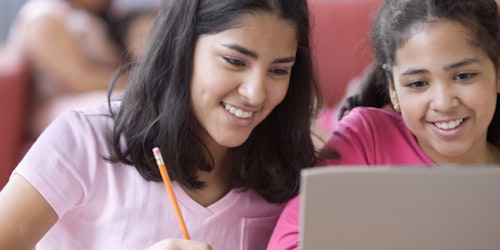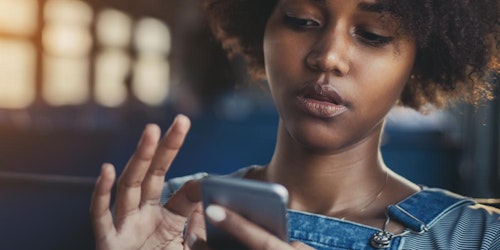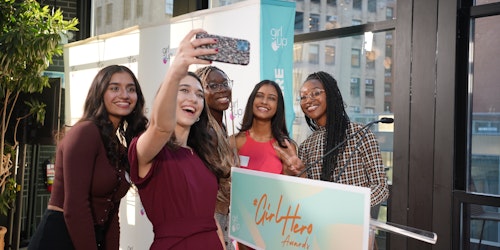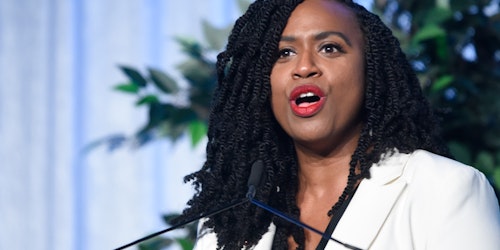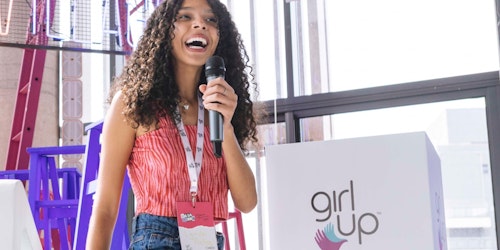Estimated reading time: 6 minutes
Venturing into another impactful dialogue, Girl Up India chatted with Aditi Gangrade, the co-founder of Much Much Spectrum – an inclusive storytelling studio focused on intersectional narratives around mental health, disability & neurodivergence. In this conversation that took place during Autism Acceptance Month, which is celebrated every year in April, we delve into the intersections of gender, neurodiversity and mental health alongside championing meaningful allyship and inclusivity.
Can you tell us a little bit about the history of Much Much Spectrum? How did you get started, and what was the original vision?
As far back as I can recall, my husband and I have been storytellers. He started Much Much Media before our meeting, and our connection grew through shared experiences. Specializing in video essays, we cultivated a safe space for the stories we showcased. Within three years, our journey with Much Much Media led us to collaborate with major brands like Google, HSBC, Netflix, and Coca-Cola.
But despite doing what we felt we were born to do, there was a sense of being misfits as we were often grappling with anxiety and breakdowns. In 2022, we started talking about our mental health and started reading up about people with neurodivergent conditions. After months of research, we discovered my husband’s autism, and I recognized myself as someone with autism and ADHD. The diagnosis process itself was very lengthy; my husband received his after 5-6 months, while I self-discovered my autism. Connecting with the autistic community in India, we realized that many go undiagnosed due to a lack of support. This realization led us to establish an originals & research wing under Much Much Media. Here, we tell stories, exploring intersections with gender, caste, and class. Within two months of launch, we created the web series Alag Hain Kam Nahi (#DifferentNotLess), crafted by and for neurodivergent individuals. With around 500 stories chronicled across India, our audience extends globally, fostering an active community of 35,000.
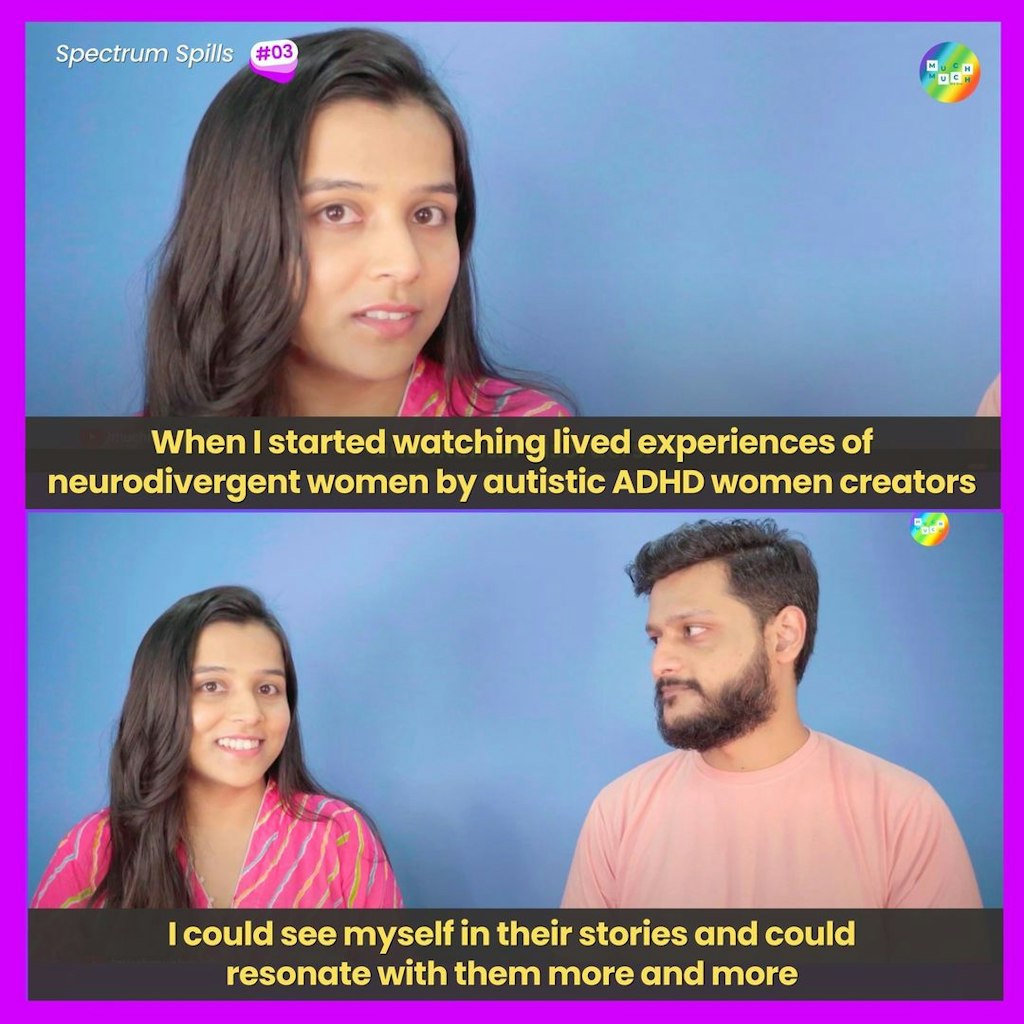
In society, there are many stereotypes and misunderstandings surrounding mental health conditions, gender identity, and neurodiversity. In what ways do you think advocacy can battle misinformation, and is social media a critical tool for advocacy and activism?
As you pointed out, there are a lot of harmful stereotypes that still persist due to the medical model of understanding disability. For example, there is a stereotype that ADHD only affects boys. However, for instance, the LGBTQ+ community in their commendable fight for their rights and liberation challenged so many myths and stereotypes about queer people. A similar vigor is needed from the neurodivergent community. You can start by joining self-advocacy networks; they are very liberating and empowering. Over the past year, as we’ve actively built a community centering disability rights, we’ve received messages from parents of autistic adults and individuals expressing how our platform has saved lives. This is a reminder of the power of advocacy. However, a significant challenge remains in extending this discourse to smaller cities and building regional lexicons to talk about neurodiversity.
Real inclusion goes beyond checkboxes; it’s an ongoing process. Inclusivity involves not just hiring disabled or neurodivergent individuals but placing them in positions of power. We need lawmakers, lobbyists, and the media to do more.
Inclusivity involves not just hiring disabled or neurodivergent individuals but placing them in positions of power.
India’s National Mental Health Survey of 2015-16 reported a treatment gap of 83% for all mental health concerns. What unique challenges do individuals from marginalized identities face in accessing support and resources, and how can we address these challenges?
With specific regard to neurodivergence, the way most conditions present in various marginalized communities is very different from popular ideas of these conditions. Research shows that people of color find it difficult to access a diagnosis simply because so little is documented about how these conditions present in people belonging to these communities. Additionally, various stereotypes about marginalized communities further push them away from being able to access diagnosis. This exact phenomenon is reflected in India with discrimination over here being mediated by religion, class, caste, gender, sexuality and more. People still look at neurodivergent conditions as a monolith. Furthermore, these conditions have been pathologized and viewed from a deficit-based approach for a long, long time. In these circumstances, it’s difficult for anyone who’s not white or male to get a diagnosis anywhere in the world. And even when they do have access to some form of mental health support or resource, they experience discrimination and invalidation of their experiences.
This is why we want to reflect the diversity that exists across the spectrum through storytelling at Much Much Spectrum. We can address some of these challenges by taking active efforts towards inclusion in places we spend the most time at – schools, colleges, workplaces, home, etc. More and more mental health professionals need to have a neuroaffirming and intersectional approach in their practice. We need more resources for neurodivergent and disabled people that are accessible and affirmative.
We need more resources for neurodivergent and disabled people that are accessible and affirmative.
What role do allies and advocates play in promoting awareness and acceptance?
Allyship is important for any movement as it strengthens the movement even more. We need allies to enable more autistic voices instead of taking over the conversation. The discourse in the past has been led by people who are not autistic themselves. We need to hand back the mic to people with lived experiences instead. You can be a great ally by understanding neurodivergence better, by acknowledging that every condition is different to the other, and by rejecting stereotypes. Being a true ally also means connecting with and amplifying the voices of self-advocates, investing in disability and advocating for inclusive policies. There’s a need to bring in a disability-inclusive lens in every single domain.
What advice would you give youth in such communities to prioritize their self-care as they advocate for these critical issues?
There are still a lot of disabled and neurodivergent people who are afraid, and rightfully so, to come out with their disability for fear of discrimination. There are so many schools that don’t give autistic children admission, and so many parents write to us about this issue. This is one of the many reasons why we need more people to become advocates for advancing disability rights. Additionally, I would like to tell all neurodivergent and disabled people not to let anyone invalidate your identity and your existence. I know that it’s difficult to live in an unaccommodating, ableist world, in an environment where most people don’t understand you or think of you as a “misfit.” But that is exactly why we need to be more vocal about our experiences. It’s very liberating and encouraging to meet others like you. It sometimes might feel frustrating when you are putting in a lot of work with no result, but remember that change takes time. Kind revolution is the way forward!
Disability has been an afterthought for years, we need young people to change that.
Finally, to all young changemakers: be kind and inclusive. Include the neurodivergent and disabled community in the feminist movement, in conversations about climate change, disaster risk reduction, the LGBTQIA+ movement. Disability has been an afterthought for years, we need young people to change that.
This interview has been edited for length and clarity.
Follow Girl Up India for more conversations on global feminist issues with the world’s most influential changemakers as a part of their ongoing series ‘Feminists Across Borders’ on Instagram.
